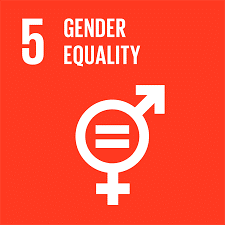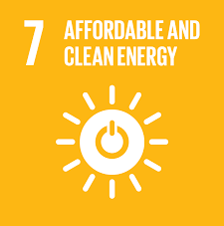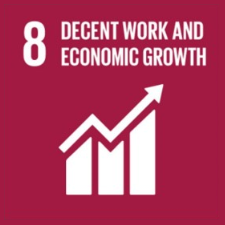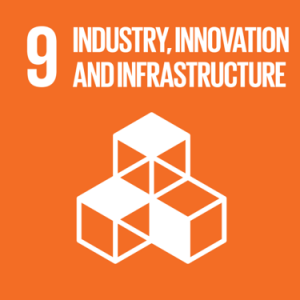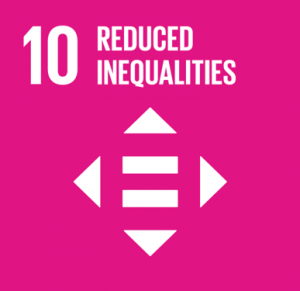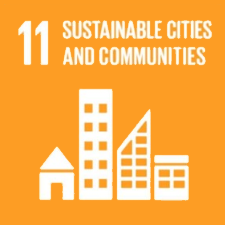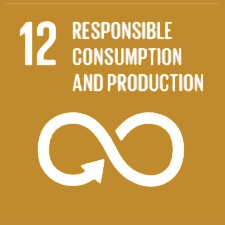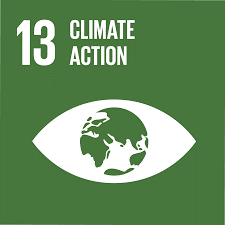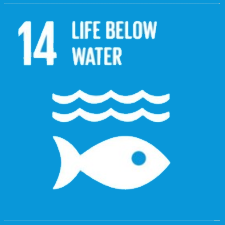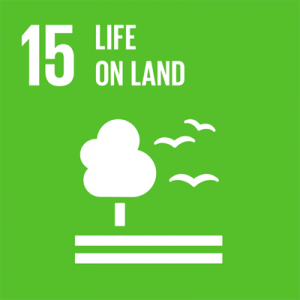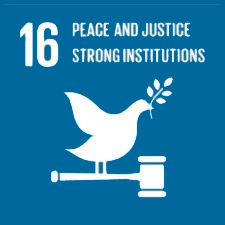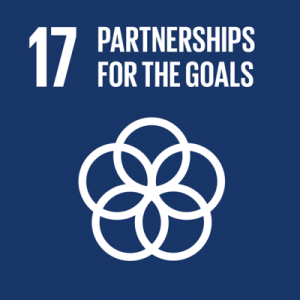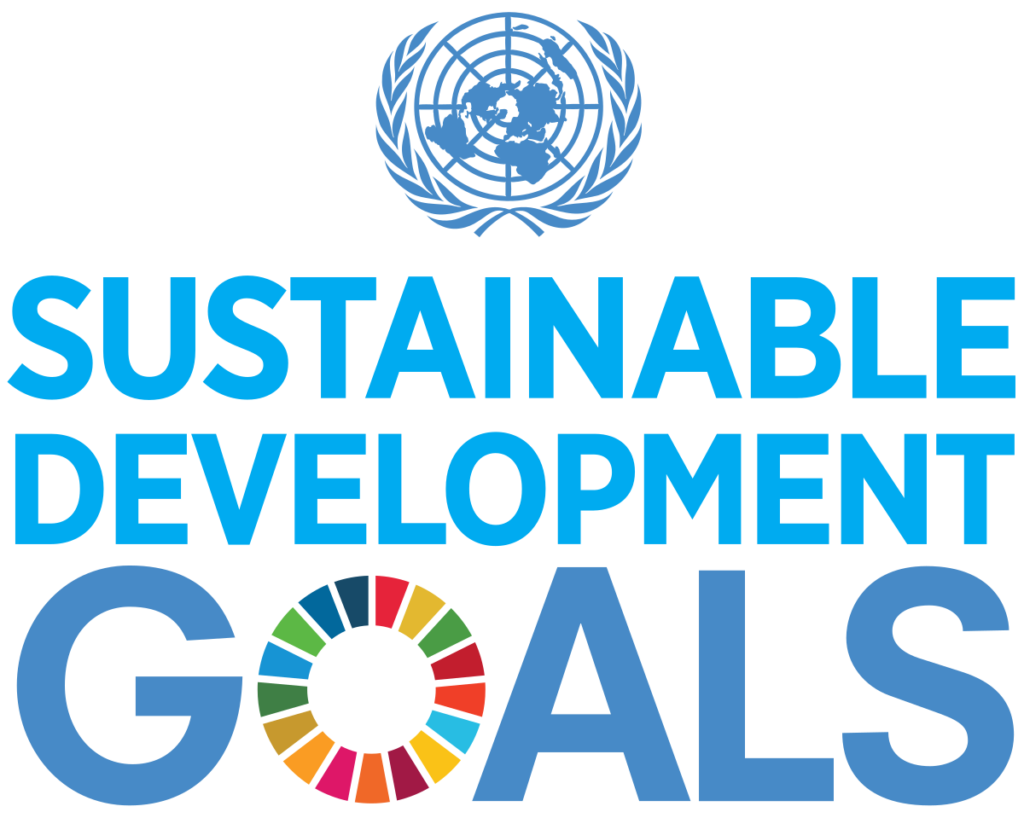SUSTAINABLE DEVELOPMENT GOALS
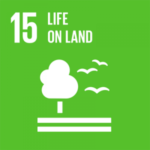
SDG 15: LIFE ON LAND
“This is the second of two SDGs that look at the broader ecosystem – the other being SDG 14: Life Below Water. Life on land is a precious resource – we need to ensure that it is passed on to future generations, at a time when loss of biodiversity is an increasing concern. Different universities will have responsibility for very different landscapes and the life within, but all have a responsibility as stewards of their environment.”
(THE Impact Rankings)
Supporting land ecosystems through education
1. CTSS IPB University invites youth to care about pollinating insects
Pollinating insects is an important factor in promoting forest and land conservation. To enhance knowledge of this natural process and its benefit to the forest and land ecosystem, the Center for Transdisciplinary and Sustainability Sciences (CTSS) held a Naturalis training for Indonesian pollinating insects, particularly the young generation.
CTSS IPB University invites Youth to Care about Pollinating Insects
2. Dr. Windra explains the importance of bee without sting (Kelulut) in sustainable forest conservation
Bees have an important role in maintaining biodiversity and promoting sustainable forest conservation. The loss of these insects can even threaten the balance of the ecosystem. Understanding the biological characteristics and diversity will enable humans to use and maintain the environment and natural resources correctly.
3. IPB University Student Discusses Komodo Conservation in Komodo National Park
Student Executive Body of the Faculty of Forestry and Environment IPB University held a webinar to discuss Komodo (Varanus komodoensis) conservation due to this species being the most protected wildlife. This activity also discussed the impact of Komodo National Park development on the ecological as well as socio-economic aspects of the local community.

4. Faculty of Veterinary Medicine IPB University Collaborates with PT Wersut Seguni Indonesia in Dolphin Conservation
The Faculty of Veterinary Medicine (FKH) IPB University signed a collaboration with PT Wersut Seguni Indonesia (WSI) to protect aquatic wildlife, especially dolphins through education, research, community service, and developing innovations in the field of aquatic animal health.

Sustainably-farmed food on campus
IPB has a commitment to provide food on campus that is sustainably farmed, which has been stated in the Rector Decree No.133/2020. IPB ensures that all canteens on campus use raw materials from sustainable agriculture and livestock and fishery activities that comply with animal ethics.
Rector’s Decree No.133/IT3/LK/2020: Commitment to Achieving SDGs
Organic farming with end-to-end system and greenhouse system
This direction has been implemented by ATP IPB (Agribusiness and Technology Park) in producing organic vegetables and fruits that have fulfilled Indonesian National Standard on Organic Farming System (SNI 6729-2016) adopted by INOFICE (Indonesian Organic Farming Certification).
The nursery activities carried out at ATP are vegetable and fruit nurseries, as well as fish hatcheries. The types of vegetables in this nursery include lettuce, pakcoy, kailan, kale, cayenne pepper, curly chili, eggplant, and cabbage. Seedlings are carried out in greenhouses that apply NMC pro Climate, a tool used to regulate the microclimate in the greenhouse. It is also equipped with a Netbeans controller, which functions to control watering and fertigation to make efficient use of water. These nurseries are carried out to meet the needs of ATP partner farmers and are sold directly to non-partner farmers.
University Manages Ecolabelling Canteen
As a part of the green movement, IPB University provides and manages an ecolabelling canteen that is healthy, clean, and safe food. This eco-label is set on eco-friendly canteens, which require all products must be based on natural resources and ecosystems preservation. This is stated in the IPB Academic Paper and Implementation of IPB Green Campus 2019-2023.
Academic Paper and Planning for IPB Green Campus Implementation 2019-2023
IPB University directly maintains ecosystems and their biodiversity of flora/fauna, especially ecosystems under threat. Many activities have been carried out by scientific studies, reports, and actions to reduce biodiversity loss and maintain ecosystem function. Those activities have collaborated with relevant stakeholders.
1. Center for Transdisciplinary and Sustainability Sciences (CTSS) IPB University with the Wildlife Conservation Society (WCS) Collaborated to Tackle Wildlife Trade using Artificial Intelligence Technology
Center for Transdisciplinary and Sustainability Sciences (CTSS) IPB University with the Wildlife Conservation Society (WCS) collaborated to tackle wildlife trade using artificial intelligence technology. This effort was carried out to protect wild animals, especially under-threat species. Artificial intelligence technology can help monitor and prevent illegal wildlife trade transactions. This technology can be used for monitoring, predicting, discovering, interpreting, interacting with the physical environment, interacting with machines, and interacting with people.
CTSS IPB University Collaborates with WCS Use AI for Combating Wildlife Trafficking

2. IPB University conserves the habitat of wildlife animals and constitutes the area visited by several migratory birds.
IPB University campus area still has a lot of forested areas, about 250 hectares which contain biodiversity. Various plants and animals living in the campus forest area are well-conserved. This area is also an important habitat for several migratory birds. The student Activity Unit (UKM) of the Fauna Conservation Union (UKF) works to identify bird species living in the campus area to promote their conservation.
IPB University Fauna Conservation Union Finds Lost Animals on IPB Dramaga Campus
3. A lecturer at IPB University Reported around 30 Indonesian Primate Species Will Be Extinct by 2050
The lecturers at IPB University conduct a study on the primate population and their distribution on several islands in Indonesia. The results showed that around 30 Indonesian primate species may be extinct by 2050 because of climate change and landscape changes that have led to extinction. Hence, conserving species is necessary.
4. IPB University and PT Purinusa Ekapersada Cooperated to Restore Peatlands
Peatland is one of the essential and vulnerable ecosystems in the tropics. There are many threats and disturbances to forests and peatlands, while these ecosystems are vital to biodiversity sustainability. This collaboration consists of education, research, and community service to apply innovation in the community.
IPB and Purinusa Ekapersada collaborate on peatland restoration
IPB University offers various educational programs on ecosystems for local, national, and international communities with interesting and beautiful scenes. Those educational programs are conducted inside and outside campus, such as identifying medicinal plants, visiting insect gardens, observing different kinds of animals, and other interesting programs.
1. Webinar on Biodiversity Crisis in the Pandemic
The faculty of Forestry and Environment organize a webinar to educate the public and raise concerns about biodiversity and forest conservation and its challenges during the pandemic.
2. Summer Course on Innovation and Rainforest Ecosystem Management
The Faculty of Forest and Environment organizes a summer course to educate young people about rainforest management and conservation and to stimulate ideas for innovation and action.
3. Agroedutourism (AET) IPB, Interesting Educational Agricultural Tourism
Agroedutourism programs (AET) are provided for the public. Educational programs are available in Biopharmaceutical Medicinal Plant Installation Garden, Insect Garden, and Cikabayan Garden.
4. Agroedutourism Visit as an Interesting Educational Tour
The agrotourism visit is an educational package introducing the horticultural agribusiness management model carried out by Agriculture and Technology Park IPB. Various packages are offered, ranging from walking and identifying species in the garden to practicing cultivating plants directly. It also provides training for actors and prospective agribusiness actors or personnel, directly and indirectly, related to agribusiness activities.
5. Primate Animal Study Center IPB University Educates the Local Community to Conserve the Ecosystem
Primate Animal Study Center IPB University educated the local community in Cikiruh Wetan, Banten to conserve their ecosystem. This program was held at a semi-natural breeding facility for long-tailed monkeys (Macaca fascicularis) on Tinjil Island, Banten.
IPB University conducts educational and outreach programs in a broad sense, including a wide range of educational programs related to sustainable management of land for agriculture and tourism.
1. IPB Lecturers Work Together with the Community To Develop Agro-based Tourism Villages
A team of lecturers facilitates the development of agro-based tourism in Benteng Villages through a participatory approach. Training is conducted to enhance the village members to set up a development plan based on identified potencies and problems within the village.
2. IPB University and the Indonesia Ministry of Agriculture Held the International Conference on Sustainable Agriculture Management
Improving the communities’ skills through training and capacity building on sustainable agriculture management as a part activity of this 2nd International Conference on Sustainable Plantation organized by IPB-Indonesia Ministry of Agriculture is necessary and impactful to the communities’ welfare.

3. IPB University Offers Agroedutourism (AET) to the Public
Agroedutourism is a combination of agrotourism and edutourism. AET provides not only tourist spots with beauty and agricultural experiences but also provides a lot of new knowledge related to agriculture and its sustainable management.
4. Belitong Geo-Park, Partner of the Department of Biology IPB University Partner Officially designated as UNESCO Global GeoParks (UGG)
Since the signing of the Collaboration agreement between IPB University and the Belitong Geopark management in 2018, several activities have been carried out in education, research, and community service.

Supporting land ecosystems through action
IPB University commits to ensuring the conservation, restoration, and sustainability of terrestrial ecosystems, particularly forests, mountains, and drylands.
1. IPB commits to promoting biodiversity conservation within the campus area
Through the Rector Decree no 133/IT3/LK/2020 on Commitment in the Achievement of Sustainable Development Goals (poin r), IPB University commits to promoting biodiversity conservation within the campus area and considers this aspect in every construction planning.
2. Gunung Walat Educational Forest
For a long time, the university policy to conserve, restore, and promote sustainable use of forest has been set in the vision and mission of the development and management of the Gunung Walat Educational Forest.
Vision: The realization of the Gunung Walat Educational Forest (HPGW) as an international standard implementation medium for the Tridharma of the Higher Education Faculty of Forestry, IPB, for sustainable forest management.
Mission:
- Realizing sustainable forest management in the HPGW area.
- Realizing the implementation of science and technology education and research in effective forest and environmental resource management.
- Building partnerships between HPGW and other parties as a tangible form of community service.

3. IPB University Establishes Campus Forest Garden to Conserve Biodiversity
The establishment of the campus forest garden aims to conserve flora and fauna, specifically dryland species. Planting various flora species can be a collection and habitat of fauna/animal species. Management of the campus forest garden is conducted under the Department of Forest Resource Conservation and Ecotourism, Faculty of Forestry and Environment.

IPB University complies with international conventions and national regulations as to monitoring and protecting IUCN red-listed species as well as nationally listed protected species, especially related to the IPB University activities.
1. IPB University Refers to Occupational and Environmental Health and Safety Management System (SMK3L)
IPB University has an Occupational and Environmental Health and Safety Management System (SMK3L) to protect flora and fauna species in areas affected by the operation of activities (page 1, sub-section 1.1 point d). In the work environment management, IPB University monitors flora and fauna (page 2, sub-section 1.2 point b-II-(1)). Program and target for this aspect have been set up in these guidelines (page 4).
2. IPB University Commits to Conserve Protected Species
Through Academic Senate Regulation No.36/2020, IPB University commits to conserving natural ecosystems, including protected and non-protected ones on campus (page 7, point 2F).
We also monitor and conserve our biodiversity in campus area through Biodiversity Campus Policy since 2011 as stated in IPB University’s Policy of Biodiversity’s Innovation for Eco-Edutourism. The biodiversity monitoring has been conducted during the last 20 years in the campus area. The monitoring covered habitat types, list of species and distribution of all taxaincluding mammals, birds, amphibians, reptiles, butterfliesand plants. The long-term biodiversity monitoring has produced a comphrehensive data set and a list of flora and fauna in the campus area that is updated every year. A total of 22 species of mammals, 99 species of birds, 12 species of amphibians, 38 species of reptiles, 128 species of butterflies, 173 species of woody-plants, 40 species of bamboos and at least 127 species of medicinal plants have been recorded in IPB University campus area.
Through student activities (Himakova and Fauna Conservation Union) we routinely monitor and conserve flora and fauna on campus and outside campus. Monitoring fauna on our campus includes mammals, fish, insects, herpetofauna, and reptiles.
IPB University also monitor IUCN and other species through primate research center. In 2021, The Primate Research Center Team Monitor the Population and Carrying Capacity of the Long Tailed Monkey Habitat on Tinjil Island. Tinjil Island is a Conservation Animal Laboratory developed by the Primate Study Center and has two main activities, namely semi-natural captive breeding of long-tailed monkeys (Macaca fascicularis), ex-situ captivity of tarsiers (Tarsius spectrum and T. bancanus), and slow lorises (Nycticebus coucang). .
IPB includes local biodiversity in any planning and development of the campus (pages 87 – 89), such as green building construction.
Academic Paper and Planning for IPB Green Campus Implementation 2019-2023 (pages 87-89)
IPB also clearly stated to include local biodiversity in any planning and development process on campus (point r, page 2).
Rector’s Decree No.133/IT3/LK/2020: Commitment to Achieving SDGs (point r, page 2)
One example of the program implementation is the PPLH (Environment Research Center) IPB University’s activity in reviewing the results of environmental studies around the construction site of a multi-tenant building, Science Techno Park (STP), IPB Taman Kencana. The results of the environmental study cover all environmental components, namely geo-physical-chemical, biological, socio-economic and cultural as well as public health and environmental health.
IPB University ensures no alien species or invasive species on campus. It refers to Rector Decree No.133/IT3/LK/2020 (point p, page 2).
Green Campus Policy of IPB University follows the environmental regulation on the national and international level (UNEP) to manage and maintain the campus, specifically on maintaining species diversity by selecting indigenous species and reducing alien species (page 27).
IPB university as a body collaborates with the local community in efforts to maintain shared land ecosystems :
1. Community Service through Gunung Walat University Forest (GWUF)
IPB University collaborates with local communities in the Gunung Walat area to maintain water sources through planting trees activity. Local communities have greatly contributed to maintaining the forest in good condition, and there appeared at least seven water springs that flow the whole year, fulfilling the needs of local people and irrigating agricultural lands/wetland paddy fields. Preventing logging and thinning activities in GWUF allows the structure of the forest to develop, resembling that of a natural forest (close to a natural forest).
2. Mangrove Restoration in Bengkalis
The Indonesian Peat and Mangrove Restoration Agency Accepts IPB University’s Proposal for Mangrove Development in Bengkalis. Three main activities will be carried out, namely the development of mangrove ecotourism, centers for processing agricultural and fishery products, and centers for processing agricultural products. Farmer and Entrepreneur Clinic facilities are also provided so that after this activity, the peat care villages in 19 villages will continue to communicate with experts at IPB University. For ecotourism, a policy study of the culture, nature, and heritage of the village will be conducted. Destination development, branding, and marketing will also be carried out to support ecotourism sustainability.
3. Campus Forest Park
The Faculty of Forestry and Environment (Fahutan) IPB University initiated the construction of a Campus Forest Park. Campus Forest Park is in the Cikabayan block, Dramaga Campus of IPB University, Bogor. In 2018, we started step by step the construction of the Campus Forest Park by inviting several parties to participate. Such as students, educators, and private parties with Corporate Social Responsibility (CSR) funds. This Campus Forest Park is not only beneficial for students or researchers but also for the community in general as a means of direct learning about conservation and how environmental service management can develop and benefit.
We have numerous strong partnerships with other academic institutions, national and regional governments, NGOs, and private. These partnerships are important to constructing, maintaining, and implementing knowledge to support the sustainable use of land ecosystems (terrestrial and forest, combat desertification, halt and reverse land degradation, and halt biodiversity loss). Learn more about the various centers, institutes, and initiatives that are central to our research programs.
- List of Research Centers:
- Center for Environmental Research
- Center for Agricultural and Rural Development Studies
- Center for Regional Systems Analysis, Planning and Development
- Primate Animal Study Center
- Center for Tropical Horticultural Studies
- Center for Tropical Animal Studies
- Center for Climate Management, Opportunities and Risk for South-East Asia and Pacific – CCROM SEAP
- Mine Reclamation Study Center
- Disaster Studies Center
- Agrarian Studies Center
- Center for Transdisciplinary and Sustainability Science
- List of Prospective Research Collaboration in Life on Land:
Land-sensitive waste disposal
IPB University has water quality standards and guidelines for water discharges (to uphold water quality to protect ecosystems, wildfire, and human health and welfare).
Water discharge guidelines and standards
IPB University has set up water quality standards and guidelines for water discharges as part of the Green Campus Policy that follows national regulations for developing Green Campus Policy (page 108, “management sensitive water”) to manage the water on campus (Ev. 2), and also implemented ISO 17025 for water quality analysis in the laboratory (e.g., Department of Agroindustrial and Technology, Faculty of Agricultural Engineering and Technology; PROLING Laboratory at MSP Department, Faculty of Fisheries and Marine Sciences).
1.Standard Operational Procedure for Wastewater Management (IPAL)
Wastewater Treatment Plant (WWTP) is a structure designed to dispose of biological and chemical waste from a building which is treated using biotech and other supporting devices so that it is safe to be disposed of into the environment.
2. National Regulations:
Water quality standards and guidelines for water discharges, as stated in the Environment and Forestry Ministry Regulation No. P.16/MENLHK/SETJEN/KUM.1/4/2019 concerning Water Quality Standard (Ev 1, page 6).
3. Green Campus Academic Paper
IPB develop Green Campus Policy (page 108, “management sensitive water”) to manage the water on campus.
4. Commitment to Achieving SDGs at IPB University
IPB University declared a commitment in achieving sustainable development goals (SDGs) through the Decree of the Rector of the Bogor Agricultural University No. 133/IT3/LK/2020. The decision includes a commitment to comply with government regulations regarding managing liquid waste and waste.
We have the policy to reduce plastic waste on campus through Rector Regulation No. 29/IT3/OT/2020, chapter 2, page 5, Instructions for the Implementation of Waste Management in IPB University (page 5, chapter II, “pengurangan sampah”), and the Rector’s Decree number 133/IT3/LK/2020, point n, page 2.
1. Implementation of Waste Management in IPB University
IPB University implemented Rector Regulation No. 29/IT3/OT/2020 about implementing Waste Management to reduce plastic waste on campus.
2. Commitment to Achieving SDGs at IPB University
IPB University declared a commitment to achieving sustainable development goals (SDGs) through the Decree of the Rector of the IPB University No. 133/IT3/LK/2020. The decision includes a commitment to reduce the production of plastic waste.
3. Regional Regulation
IPB University, which is in the Bogor Regency area, is committed to following the Bogor regent’s regulation no. 13 of 2019 concerning reducing the use of plastic and Styrofoam.
4. Campaign on Plastic Diet
The orientation period for IPB students batch 58 or entering 2021 has just finished by breaking the record for a plastic diet campaign involving 4,000 participants.
1. Policy on waste disposal management
IPB has issued a waste management policy for various types of waste disposal including hazardous waste to improve its management in all units at various levels in universities. Each unit within the university has to implement the zero waste policy, such as by reducing single-use items (such as plastic and styrofoam) and managing hazardous waste.
2. Commitment to implement standardized waste management
The commitment to implement waste management, including hazardous waste, under the standards set by the government, has been stated in the Rector’s Regulation Number 133/IT3/LK/2020.
3. Unit coordinator for campus waste management
The Directorate of Infrastructure, Facilities, and Security for the Campus Environment Units has a function to coordinate all waste management activities conducted by all units within the university. This task and function follow the regulations of the Board of Trustees number 06/MWA-IPB/P/2020 (Page 44 Part 9 Article 85).
RELATED NEWS
It seems we can't find what you're looking for.





